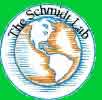|
|
A
Sphingomonas species that mineralizes high concentrations of pentachlorophenol
(PCP) was isolated from a PCP-contaminated EPA Superfund site. This bacterium,
identified as Sphingomonas sp. Strain RA2, is able to degrade PCP
at concentrations of up to 300 µg/mL in liquid culture. This organism
was tested for its ability to degrade high concentrations of PCP in a soil
that did not contain organisms capable of degrading high concentrations
PCP. When inoculated into contaminated soil, Sphingomonas sp. RA2
mineralized PCP at concentrations of 300, 600, 900, and 1200 µg PCP/g
of soil, but was unable to mineralize 1500 µg PCP/g soil. Only very
minimal loss of PCP was seen in uninoculated soils. The results of this
study demonstrate that Sphingomonas sp. RA2 may be a useful organism for
remediation of sites contaminated with high concentrations of PCP.
|
|
|







